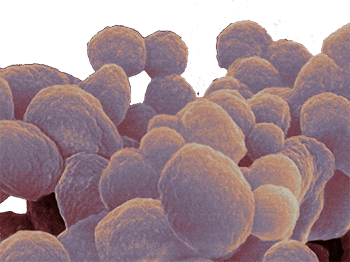Mycoplasma genitalium infection is like chlamydia or gonorrhoea, and is a sexually transmitted infection, because it’s relatively new in STI terms.The bacteria can infect the urethra, throat, cervix and anus. The infection can pass through the cervix and into the fallopian tubes and uterus, causing pelvic inflammatory disease (PID), cervicitis, and urethritis. M. genitalium is also associated with bacterial vaginosis.
Science Lesson
Mycoplasma is a type of bacteria that don’t have a cell wall, and therefore are unaffected by common antibiotics like penicillin that directly target cell-wall synthesis.
Symptoms of Mycoplasma genitalium infection
- Pain when urinating
- Pain in the pelvic area
- Unusual vaginal discharge
- Men may experience the same but from the penis
- Some people do not feel any symptoms
If you have recurrent urethritis that has no known cause, call your local STI clinic or doctor and see if they test for this bacteria in routine STI tests, and if you haven’t already been tested, do so.
Sexual transmission of M. genitalium
The Mycoplasma genitalium bacteria can be transmitted through oral, vaginal or anal sex and an asymptomatic person can still be a carrier. The bacteria can also be spread by contact with contaminated sex toys. Condoms and careful sexual hygiene can prevent transmission, but it can be difficult to avoid since there are so many routes of entry.
If it has been confirmed that you or your partner has Mycoplasma genitalium infection, it can be easily treated with oral antibiotics. The main priority with diagnosis is to refrain from having sex until you have finished your antibiotics and have been cleared by your healthcare provider, and to tell every person you have been in sexual contact with as far back as you dare (six months is usually the norm).
Why hasn’t anyone ever heard Mycoplasma genitalium?
The bug was found in 1980 when examining non-specific urethritis in men. The bacteria has been studied since, but is impossible to culture in a clinic and needs very specific conditions to grow. It is, interestingly, still not listed as a sexually transmitted infection anywhere despite being more common than chlamydia.
The prevalence is moderate, but despite how easy it is to spread to multiple raw mucous membranes (mouth, anus, vagina, urethra), a study found that M. genitalium had a 6.3 per cent prevalence rate in women, and 6 per cent in men. This is more than chlamydia, which in this particular study population was about 4 per cent.
M. genitalium causes urethritis in men and women, and cervicitis in women, and is sexually transmitted, with symptoms showing from between one and three weeks. The incubation period is unknown.
Treatment of M. genitalium infection
Testing is done via urine, and if positive, Mycoplasma genitalium is treated using a single, oral dose of an antibiotic (Azithromycin) though this might not be the most effective treatment since this bacteria may be antibiotic resistant. Longer treatment periods may be required.
References
The most comprehensive vaginal microbiome test you can take at home, brought to you by world-leading vaginal microbiome scientists at Juno Bio.
Unique, comprehensive BV, AV and 'mystery bad vag' treatment guide, one-of-a-kind system, with effective, innovative treatments.
Promote and support a protective vaginal microbiome with tailored probiotic species.






